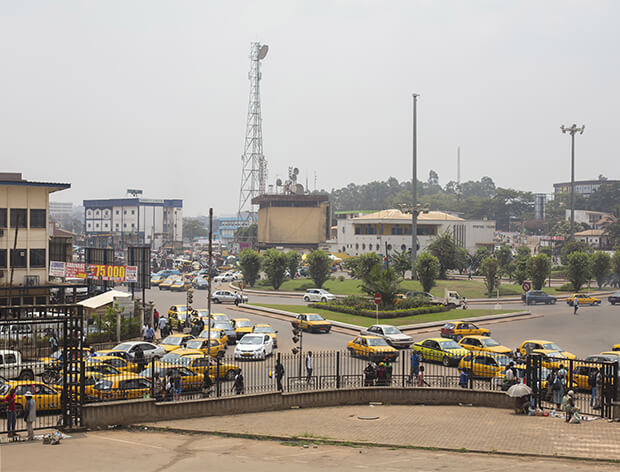The African Export-Import Bank (Afreximbank) is set to launch a branch office in Cameroon – its first in Central Africa – as the bank seeks to increase its presence in the region.
Afreximbank and the government of Cameroon have signaled their intent to establish a hub in Yaounde, inking a branch office agreement and a memorandum of understanding over the weekend.
The bank is headquartered in Cairo and currently has offices in Abidjan, Abuja, Harare and, most recently, Kampala. The East Africa branch office, its first in that part of the continent, was officially launched in the Ugandan capital in November.
Afreximbank’s president Benedict Oramah says the new base in Cameroon will aim to help exporters in the nine countries in Central Africa, offering them advice, as well as trade and investment information about opportunities in other parts of Africa.
Speaking to GTR previously, Oramah discussed the need to spread trade information more effectively: “One of the biggest problems that intra-Africa trade has today is a lack of trade information. For example, Kenya today imports certain kinds of leather from outside Africa, which can be sourced in Burundi. Egypt imports meat from outside of Africa – but Chad produces a lot of that kind of meat.”
He added: “There are several such examples. The average African businessman who wants to do international trade does not view another African country as a market.”
Speaking prior to the signing of the documents, Cameroon’s Prime Minister, Dr Joseph Dion Ngute, said the office would help countries in the region benefit from the African Continental Free Trade Agreement (AfCFTA).
The landmark deal, launched in 2018 and now in its operational phase, is aiming to allow the free movement of people and capital on the continent and bring 54 African countries into a single market for goods and services.
According to the African Union, the agreement has the potential to boost intra-African trade by 53% by eliminating import duties, and to double trade on the continent if non-tariff barriers are also reduced.
However, research from Baker McKenzie and Oxford Economics claims some countries won’t feel the benefits so acutely.
Mattias Hedwall, partner and head of Baker McKenzie’s global international commercial and trade group, told GTR recently that Angola is one African country that might lose out in the near-term because it’s too heavily dependent on hydrocarbons.







